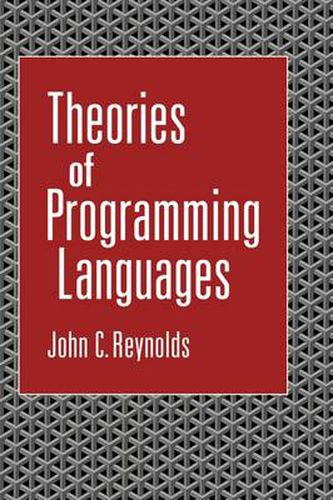Readings Newsletter
Become a Readings Member to make your shopping experience even easier.
Sign in or sign up for free!
You’re not far away from qualifying for FREE standard shipping within Australia
You’ve qualified for FREE standard shipping within Australia
The cart is loading…






This textbook is a broad but rigorous survey of the theoretical basis for the design, definition, and implementation of programming languages, and of systems for specifying and proving program behaviour. Both imperative and functional programming are covered, as well as the ways of integrating these aspects into more general languages. Basic concepts and their properties are described with mathematical rigour, but the mathematical development is balanced by numerous examples of applications, particularly of program specification and proof, concurrent programming, functional programming (including the use of continuations and lazy evaluation), and type systems (including subtyping, polymorphism, and modularization). Assuming only knowledge of elementary programming, this text is perfect for advanced undergraduate and beginning graduate courses in programming language theory, and will also appeal to researchers and professionals in designing or implementing computer languages.
$9.00 standard shipping within Australia
FREE standard shipping within Australia for orders over $100.00
Express & International shipping calculated at checkout
This textbook is a broad but rigorous survey of the theoretical basis for the design, definition, and implementation of programming languages, and of systems for specifying and proving program behaviour. Both imperative and functional programming are covered, as well as the ways of integrating these aspects into more general languages. Basic concepts and their properties are described with mathematical rigour, but the mathematical development is balanced by numerous examples of applications, particularly of program specification and proof, concurrent programming, functional programming (including the use of continuations and lazy evaluation), and type systems (including subtyping, polymorphism, and modularization). Assuming only knowledge of elementary programming, this text is perfect for advanced undergraduate and beginning graduate courses in programming language theory, and will also appeal to researchers and professionals in designing or implementing computer languages.